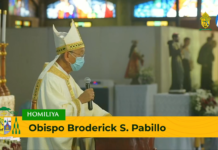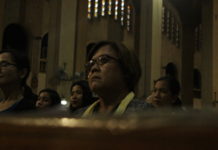 SINCE the beginning of the Duterte administration, the news media have been subject to a negative campaign aimed at selling the “biased” and “mouthpiece” narrative.
SINCE the beginning of the Duterte administration, the news media have been subject to a negative campaign aimed at selling the “biased” and “mouthpiece” narrative.
But what’s even more disappointing were the accusations hurled at them by Communications Secretary Martin Andanar when they reported on Duterte’s pronouncements of reviving Martial Law.
“Kung gusto ko at (the drug problem) will deteriorate into something really very virulent, I will declare Martial Law if I wanted to. Walang makakapigil sa akin,” the tough-talking president told businessmen in a speech at the Davao City Chamber of Commerce and Industry Incorporated last Jan. 14.
Of course, Malacañang officials were quick to defend Duterte by accusing the news media of misreporting.
Andanar, himself a former journalist but still a regular columnist for the Philippine Daily Inquirer, even called the reporting “irresponsible.”
In an unprecedented move, members of the Malacañang Press Corps (MPC), except those from state-owned media, voiced out their dissent over Andanar’s comments.
“We are disturbed and appalled by the propensity of the officials of this administration to blame the media whenever the inflammatory statements of the President stir controversy or draw flak,” the MPC statement read.
“This trend should stop as it would not contribute to the elevation of public discourse,” the statement added.
One does not need a crash course on media literacy to say that the President’s words were far from misinterpreted.
Videos of the speech, made available online, showed that quotes used in the news reports were the exact words used by Duterte.
The reports were merely narrations of the speech and did not even offer analyses or commentaries. How could there be a different meaning to these pronouncements?
An MPC reporter once said one of the downsides of covering Duterte was the ambiguity of his language and speech.
In such cases, MPC reporters would always seek for clarifications from Duterte’s spokesmen, Andanar included.
Nonetheless, reporters must always pay attention to whatever the President has to say for potential policy pronouncements.
It is alarming that journalists are attacked simply because their readers—some of which are paid trolls—and now even government officials find their critical stance of the President unfavorable.
Despite being an underpaid and thankless profession, journalism is vital in facilitating democratic discussion and keeping a check on those in power.
At the end of the day, no matter what accusations that president or his cronies throw, the loyalty of the press is still to the public.
Even if the president and his cronies continue to accuse the press of corruption and deliberate misinformation, at the end of the day, their loyalty is still to the public.
We can only hope that months into his new job cleaning up after one controversial statement after another, Andanar would not degenerate into a media illiterate.
As for Duterte, if he is firm on his word, as Andanar claims, that he has no plans to declare Martial Law, then he must refrain from using it as a threat. He should not even use it as a joke, since it only risks making him—and his “mouthpiece,” (Mis)Communications Secretary Andanar—into a joke.














